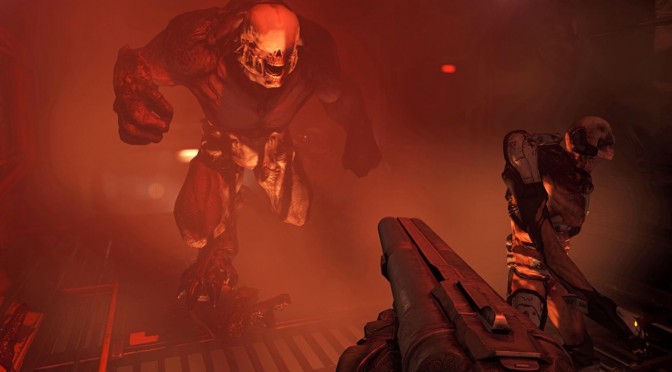Last week, we informed you about the removal of the Denuvo anti-tamper tech from DOOM. While Bethesda and id Software did not reveal the reasons why this anti-piracy tech was removed, Denuvo broke its silence and told Kotaku that its anti-tamper tech was removed because it had “accomplished its purpose by keeping the game safe from piracy during the initial sales window.”
As Denuvo’s Robert Hernandez told Kotaku:
“The simple reason why Denuvo Anti Tamper was removed from Doom was because it had accomplished its purpose by keeping the game safe from piracy during the initial sales window. The protection on Doom held up for nearly four months, which is an impressive accomplishment for such a high-profile game.”
Hernandez also claimed that the rumours about the ‘special’ refunds were incorrect. As Hernandez said, Denuvo doesn’t have any deals in place that offer refunds if a game is cracked within a specific time frame.
“We can’t comment on our deals with specific customers, but we do not have any deals in place that offer refunds if a game is cracked within a specific time frame. However, each publisher is of course free to remove our anti tamper tech from their title once they feel the protection has achieved its purpose in protecting the initial sales window, or if they have other reasons for doing so, such as selling the title on DRM-free platforms.”
And there you have it everyone, straight from the horse’s mouth. Publishers can remove the Denuvo anti-tamper tech whenever they want to!

John is the founder and Editor in Chief at DSOGaming. He is a PC gaming fan and highly supports the modding and indie communities. Before creating DSOGaming, John worked on numerous gaming websites. While he is a die-hard PC gamer, his gaming roots can be found on consoles. John loved – and still does – the 16-bit consoles, and considers SNES to be one of the best consoles. Still, the PC platform won him over consoles. That was mainly due to 3DFX and its iconic dedicated 3D accelerator graphics card, Voodoo 2. John has also written a higher degree thesis on the “The Evolution of PC graphics cards.”
Contact: Email

